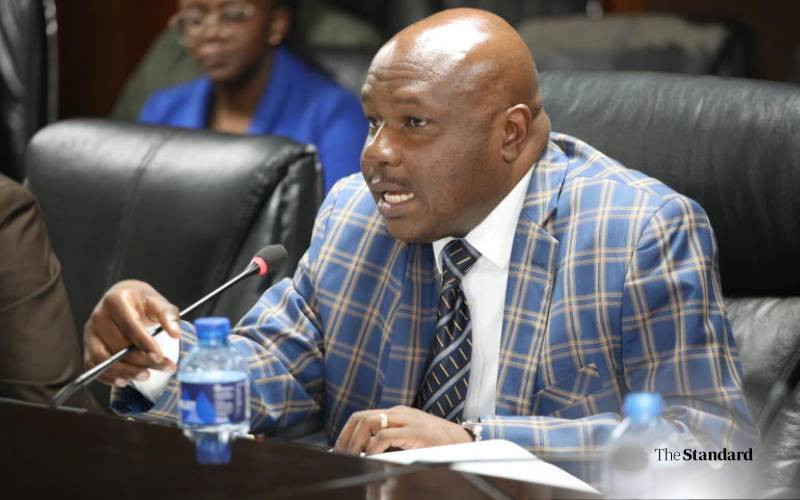'Medicine has changed dramatically' says doctor preparing to leave from Manchester to Australia | ITV News Granada
This summer around 20,000 doctors are expected to miss out on specialty training places and some UK trained doctors are at risk of unemployment this summer, according to the British Medical Associations (BMA).
Last year, there were 25,496 applicants for 12,743 medical specialty training posts. This year 33,108 doctors have applied for speciality training in the NHS with only 37% of these doctors being UK graduates, BMA data shows.
The BMA's UK resident doctors committee is calling on the government to expand the number of specialty training places and for doctors who have trained in the UK to be prioritised for these places.
Dr. Robbie Leigh who has been working in Manchester and would like to stay in the area, but is off to Australia this summer because he says his chances of securing specialist training in A&E are too slim.
After completing five years of medical school, doctors must undergo two years of foundation training in a hospital before applying for specialty training.
During this foundation stage, these doctors are referred to as resident doctors but were formally known as junior doctors until 2024.
Once resident doctors successfully finish the foundation programme, they can pursue training in a specific specialty, such as A&E or training to become General Practitioners (GPs).
Without specialty training, resident doctors' careers stagnate, and they cannot follow the traditional path to becoming consultants.
In 2019, UK graduate doctors lost their job application priority for specialty training posts, and since then the number of applications from International Medical Graduates (IMGs) has drastically increased.
Last year, there were over 25,000 applicants for fewer than 13,000 available places, and 58% of these applicants were trained abroad. This year, the number of applicants has risen to over 33,000, with 63% coming from doctors trained outside the UK.
Dr. Robbie Leigh aspires to work in A&E. When he began his medical career in 2018, there were 369 A&E training places available for 700 applications, resulting in a greater than 50% chance of qualifying in that specialty.
However, last year, there were only 359 A&E specialty training positions for 2,718 applications, which would have reduced his chances of qualifying in that field to approximately 13%.
The competition ratios for 2025 have not yet been published. However, we do know that last year there were 25,496 applicants, and this year that number has risen to 33,108.
Robbie is nearing the end of his foundation training. Speaking to ITV News, he explained why he is not applying for specialty training in the UK, despite his desire to remain in the North West region of the country: "I didn't apply for training this year because I knew the chances of getting my desired placement were slim.
"Since then, I have been applying for jobs in Australia alongside my partner, who is also a doctor in a similar situation. I have received three job offers in Australia.”
Dr. Robbie has garnered nearly 350,000 likes on his TikTok account @robbiejleigh, where he uses his platform to educate his followers about the working conditions and employment prospects for doctors like him.
He said: “Medicine has changed dramatically in a short period of time. People often comment on my TikToks, insisting that my experiences aren't true and like to remind me that 'I knew what I signed up for'.
“However, what I signed up for in 2018 was very different. I've heard stories of doctors working as Amazon drivers because they cannot find jobs as doctors.
"This situation is detrimental not only for us as doctors, but also for patients. Many people are waiting to see doctors, and there is a high demand for specialist training.
"If we leave the country or the NHS to pursue work in another sector in the UK, then it’s a poor investment from the government.”
The intense competition for specialty training positions has led many resident doctors to seek other medical job opportunities, but this increased competition has also made those alternative jobs harder to secure.
Dr. Lucy Marshall, is nearing the end of her foundation training and dreams of becoming a GP.
She said: "I didn't even apply for specialty training because I thought my chances would be too slim.
"I've applied for twenty-one jobs that I hoped would make my CV competitive so that I stand a better chance when I apply next year.
"But all I've received so far are rejections, so come August, I will be unemployed. One of the jobs I applied for received over 2000 applicants in the feedback that I got, so it wasn't surprising that I didn't receive an interview."
"It's been a really stressful time. When I started my medical degree I was told 'you'll always have job security', and that's just not the case."
Dr. Ross Nieuwoudt, Co-Chair of the UK Resident Doctors Committee, highlighted that millions of NHS patients are still waiting to be treated. He said: "The best course of action the government can take is to increase the number of training places. In lieu of that, the next best option is to ensure that those who attend medical school in the UK are prioritised when applying for specialty training posts.
"However, it is crucial that this is done while also protecting the careers of international medical graduates currently working in the NHS."
It costs around £230,000 to train a doctor in the UK according to the Department for Health and Social Care.
A spokesperson from the department told ITV News: “This government is committed to building our home-grown talent by training thousands more doctors, including specialists and consultants.
“Ensuring we have the right people, in the right places, with the right skills will be central to our 10 Year Health Plan.
"We will publish a refreshed workforce plan to deliver a transformed health service and we are tackling the issues that resident doctors are facing in partnership with the BMA.”







